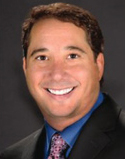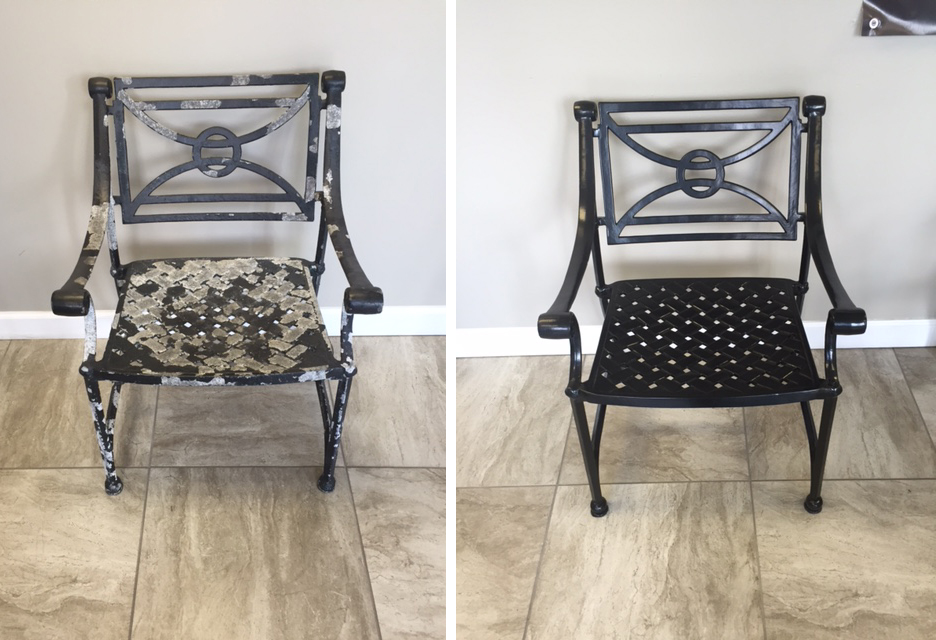The 2017 Spring Legislative Session: Medications for Community Association Corruption (May Have Serious Side Effects)
Consumer protection for community association members from board or management corruption is the most dominant theme of the pending legislative session. The following is an overview of proposed legislation as of March 29, 2017.
Liability for Directors, Officers, and Management Companies (SB 1682, HB 1237, SB 1258, and HB 1001)
This proposed legislation was prompted by a Grand Jury Report issued after Miami-Dade County State Attorney Katherine Fernandez Rundle investigated complaints of alleged widespread corruption and fraud in condominiums. The controversial Report, released on February 6, 2017, was in response to a multitude of owner complaints of fraud and disenfranchisement. The Report diagnosed the following issues: (1) inaccessible records; (2) association management issues; (3) director conflicts of interests; (4) ineffective enforcement by the Department of Business and Professional Regulation (“DBPR”) Division of Condominiums, Time Shares, and Mobile Homes (the “Division”); and, (5) fraud in Board Elections. Consequently, the Report seeks legislative changes to curtail these issues.
The Report argues that the DBPR is ill-equipped to prevent the recurring problems afflicting associations. Consequently, it seeks a more active role for an already over-worked judiciary and criminal justice system. The Report proposed introducing financial and/or criminal liability for wrongdoing directors, officers, and/or management companies. The resulting outcry from industry professionals and associations includes commentary that the Report is somewhat one-sided, does not give due consideration to DBPR funding issues that impact its enforcement abilities, and makes overly harsh recommendations attacking volunteer directors, which will increase operating costs and dissuade board service. The Report counters that those individuals you want running boards would never engage in criminalized conduct.
SB 1682 and HB 1237 attempt to address the concerns raised by the Report. The main legislative proposals are as follows:
- Directors can’t serve four (4) consecutive two (2) year terms absent a two-thirds (2/3rds) membership vote approving lengthier service;
- Expediting recall procedures;
- Prohibiting dual legal representation of an association and its management company;
- Prohibiting directors and managers from acquiring foreclosed real estate at a foreclosure sale or through deed in lieu and prohibiting managers from acquiring more than 50 percent of the units or any unit subject to an association lien;
- Introducing conflict of interest disclosure requirements and preventing associations from dealing with companies owned, operated, or associated with directors or any person with a financial relationship to them;
- Criminalizing knowing and willful prevention of access to the association’s records and defacement or failure to maintain association accounting records by directors or management companies;
- Criminalizing knowing and willful fraudulent voting activities in elections;
- Modifying voting suspension rights for delinquencies by requiring at least $1,000 to be owed and thirty days of notice;
- Requiring the digital posting of certain records for associations with more than 500 units;
- Allowing for private sector Division Arbitrators;
- Bids for materials, equipment, or services are added to the list of records; and,
- Providing official record access to tenants.
The criminal penalties range from misdemeanors (first to third degree) for repeat failures to provide association records upon authorized request to third degree felonies for election fraud. Regarding conflicts of interest, the proposed legislation overlooks protections already in place for interested director transactions under a theory that permitting any interested director transactions creates a moral hazard—a slippery slope towards corruption.
SB 1258 and HB 1001 (on no committee agendas at present) proposed to establish personal financial liability for directors or officers where the board or the Division determines that the director or officer knowingly violated governing documents or Chapter 718. The director or officer would be personally liable for increasing civil penalties based on the number of offenses. SB 1258 and HB 1001 emphasize deterrents and a Division role, but threaten liability and abuse through board overreach.
In effect, the bills seek to prevent directors from delaying or undermining rights to transparency and self-determination, which protect against abuse. While the bills reflect a positive intention by the legislature to curb abuses, critics assert that these legislative proposals go too far.
Protections for Homeowners’ Association Members and Buyers (HB 295)
In the case of HOAs, HB 295 (also not on any agenda) provides that a member denied access to records would be entitled to minimum damages of $500 per day for up to 30 days—a significant increase. This amount was troublesome considering that some members use records requests as a tool to harass. If a community association manager is responsible, the member could maintain a cause of action against the manager; however, manager indemnification of associations is excluded.
The bill eliminates liens for fines in excess of $1,000, modifies triggers for HOA turnover from the developer, and requires sellers to provide governing documents and budgets to prospective buyers at least seven days before closing—coupled with termination rights within three days after receipt, and also would create a cause of action against developers for enumerated grounds.
Lastly, HB 295 would expand the jurisdiction of the DBPR over homeowners’ associations, including the Division arbitration program’s applicability to HOAs, would require DBPR training programs, and would grant the DBPR the authority to enforce compliance with Chapter 720. Given the Report’s perceived funding and enforcement issues with the DBPR, it was interesting that proposed legislation seeks to expand its role while other legislation attempts to increase the role of the criminal justice system in lieu of more robust DBPR enforcement. SB 1650 also would expand Division arbitration for HOAs, bypassing presuit mediation.
Regarding Marketable Record Title Act (“MRTA”) Issues (SB 1046 and HB 735)
SB 1046 and HB 735 require mandatory consideration of MRTA preservation issues, mandatory periodic public records disclosures, and provides for a new MRTA preservation procedure.
Amendments and Estate Protections (SB 1186 and SB 950)
SB 1186 intends to change procedures for HOA amendments and incorporate a restriction on the applicability of rental restriction amendments to pre-existing owners who do not consent. SB 950would have protected the estate of a deceased owner from fines, interest, and late fees for certain specified periods.
Regarding Condominium Termination (SB 1520 and HB 7055)
SB 1520 and HB 7055 both enable all homestead owners who reject a plan to receive their original purchase price for their terminated condominium, not just direct purchasers from a developer, and adopt similar changes to the approval / rejection termination thresholds, making termination more difficult.
Estoppel Letters (SB 398 and HB 483)
Both would cap and categorize estoppel letter fees under varying circumstances and require a response to a request for an estoppel certificate within ten business days. They provide for certain mandatory estoppel disclosures, as well as publication of the name and contact information of a designated recipient for requests.
Operational Issues, Including Financial Reporting, Fire Safety Retrofitting, Among Others (SB 744, HB 653, and HB 6027)
Each would require associations with less than 50 units to submit more comprehensive annual financial reports and would eliminate language preventing condominium associations from reducing their financial reporting requirements for more than three consecutive years.
SB 744 and HB 653 have other wide-ranging changes. For condominiums: (1) includes electronic voting records in association official records; (2) clarifies that associations under 75 feet high are exempt from fire sprinkler/life safety retrofitting; (3) extends deadlines to opt out or perform fire sprinkler/life safety retrofitting to December 31, 2018; and, (4) allows meeting notice posting on websites. For HOAs specifically: (1) directors may communicate but not vote on matters via e-mail; (2) overhauls mandatory reserve requirements and voting procedures; (3) allows a developer to waive reserves for an association’s first two fiscal years but prevents waiver thereafter without a member vote; (4) adds language preventing accord and satisfaction in statutorily compliant allocation of payments; and, (5) prohibits write-in nominations where there is no election, unless the by-laws requires them.
Conclusion
Whether ultimately enacted or not, it is clear that the legislature is attempting to curb association abuses of power, create stronger penalties and disincentives to wrongful conduct, and in several cases, to address concerns in the Grand Jury Report. Whether the legislature will fund the criminal justice system or the DBPR to address these abuses is an entirely different story. Without proper funding for enforcement, the legislature may simply be doling out a placebo.
 David B. Haber is the founding partner with Haber Slade P.A. Haber’s practice includes community association law, real estate, construction, and commercial litigation, and aviation law. His e-mail is dhaber@dhaberlaw.com. Jonathan S. Goldstein is a senior associate attorney with Haber Slade P.A. Goldstein’s practice includes community association law, real estate, construction, and commercial litigation. His e-mail is jgoldstein@dhaberlaw.com. Alexander G. Leon is an associate attorney with Haber Slade P.A. Leon’s practice includes community association law, real estate, construction, and commercial litigation. His e-mail is aleon@dhaberlaw.com. This article is for informational purposes and should not be taken as legal advice.
David B. Haber is the founding partner with Haber Slade P.A. Haber’s practice includes community association law, real estate, construction, and commercial litigation, and aviation law. His e-mail is dhaber@dhaberlaw.com. Jonathan S. Goldstein is a senior associate attorney with Haber Slade P.A. Goldstein’s practice includes community association law, real estate, construction, and commercial litigation. His e-mail is jgoldstein@dhaberlaw.com. Alexander G. Leon is an associate attorney with Haber Slade P.A. Leon’s practice includes community association law, real estate, construction, and commercial litigation. His e-mail is aleon@dhaberlaw.com. This article is for informational purposes and should not be taken as legal advice.



 Michael J. Gelfand, the Senior Partner of Gelfand & Arpe, P.A., emphasizes a community association law practice, counseling associations and owners how to set legitimate goals and effectively achieve those goals. Gelfand is a Florida Bar Board-Certified Real Estate Lawyer, Certified Circuit and County Civil Court Mediator, Homeowners Association Mediator, an Arbitrator, and Parliamentarian. He is the Chair of the Real Property Division of the Florida Bar’s Real Property, Probate & Trust Law Section, and a Fellow of the American College of Real Estate Lawyers. Contact him at
Michael J. Gelfand, the Senior Partner of Gelfand & Arpe, P.A., emphasizes a community association law practice, counseling associations and owners how to set legitimate goals and effectively achieve those goals. Gelfand is a Florida Bar Board-Certified Real Estate Lawyer, Certified Circuit and County Civil Court Mediator, Homeowners Association Mediator, an Arbitrator, and Parliamentarian. He is the Chair of the Real Property Division of the Florida Bar’s Real Property, Probate & Trust Law Section, and a Fellow of the American College of Real Estate Lawyers. Contact him at 
 Alan Garfinkel has counseled homeowners, townhomes, condominium associations, and individuals throughout Florida from his same Central Florida office for 25 years. He continues to passionately work for those living in and working for community associations. Garfinkel received the highest ethics rating (AV) for more than a dozen consecutive years. Attorney peer review ratings provide objective grades based on confidential evaluations by attorneys and judges measuring a lawyer’s ethical standards and legal ability. Garfinkel Whynot only represents community associations, not big corporations like developers, banks, and insurance companies that can develop conflicts with communities. For more information, visit
Alan Garfinkel has counseled homeowners, townhomes, condominium associations, and individuals throughout Florida from his same Central Florida office for 25 years. He continues to passionately work for those living in and working for community associations. Garfinkel received the highest ethics rating (AV) for more than a dozen consecutive years. Attorney peer review ratings provide objective grades based on confidential evaluations by attorneys and judges measuring a lawyer’s ethical standards and legal ability. Garfinkel Whynot only represents community associations, not big corporations like developers, banks, and insurance companies that can develop conflicts with communities. For more information, visit 
 Ryan D. Poliakoff is a Partner of Backer Aboud Poliakoff & Foelster and serves as general counsel to condominiums, homeowners associations, and country clubs throughout South Florida. He is the co-author of New Neighborhoods—The Consumer’s Guide to Condominium, Co-Op, and HOA Living. In addition to representing associations, he is a frequent contributor at seminars and workshops for attorneys and board members, and he has written hundreds of articles for magazines and newspapers throughout the United States. He can be reached at
Ryan D. Poliakoff is a Partner of Backer Aboud Poliakoff & Foelster and serves as general counsel to condominiums, homeowners associations, and country clubs throughout South Florida. He is the co-author of New Neighborhoods—The Consumer’s Guide to Condominium, Co-Op, and HOA Living. In addition to representing associations, he is a frequent contributor at seminars and workshops for attorneys and board members, and he has written hundreds of articles for magazines and newspapers throughout the United States. He can be reached at 
 Powder coating is an advanced method of applying a decorative and protective finish to a wide range of materials and products that are used by various industries and consumers. The powder used for the process is a mixture of finely ground particles of pigment (color) and resin (protective finish), which is sprayed onto the surface to be coated. The materials to be coated are electronically grounded to attract the charged particles that adhere to the surface. After being heated in a curing oven, the powder fuses into a durable and protective coating. The result is a uniform, high quality, and attractive finish. Powder coating is the fastest growing technology in North America, providing numerous industrial applications in all form of materials and products. Powder coating is extremely beneficial when applied to outdoor furniture because of its excellent exterior performance.
Powder coating is an advanced method of applying a decorative and protective finish to a wide range of materials and products that are used by various industries and consumers. The powder used for the process is a mixture of finely ground particles of pigment (color) and resin (protective finish), which is sprayed onto the surface to be coated. The materials to be coated are electronically grounded to attract the charged particles that adhere to the surface. After being heated in a curing oven, the powder fuses into a durable and protective coating. The result is a uniform, high quality, and attractive finish. Powder coating is the fastest growing technology in North America, providing numerous industrial applications in all form of materials and products. Powder coating is extremely beneficial when applied to outdoor furniture because of its excellent exterior performance. by Tammy Leeman
by Tammy Leeman
 Eric M. Glazer is a native of Brooklyn, New York Mr. Glazer obtained his B.A. in Political Science at New York University. While at N.Y.U., Mr. Glazer was employed in the Kings County District Attorneys Office. Mr. Glazer obtained his Juris Doctorate at the University of Miami School of Law. In 1994 he established his own law office in Aventura and has recently relocated to Hollywood. Mr. Glazer has represented hundreds of community associations in the South Florida area. More info can be found at his
Eric M. Glazer is a native of Brooklyn, New York Mr. Glazer obtained his B.A. in Political Science at New York University. While at N.Y.U., Mr. Glazer was employed in the Kings County District Attorneys Office. Mr. Glazer obtained his Juris Doctorate at the University of Miami School of Law. In 1994 he established his own law office in Aventura and has recently relocated to Hollywood. Mr. Glazer has represented hundreds of community associations in the South Florida area. More info can be found at his 
 To try and solve the initial problem, it is important that a community has the appropriate barrier arms or gates installed. For instance, if the entrance is rather dark at night, consider LED barrier arms. Envera Systems installs these arms that are red when closed and green while opening. The arms illuminate the gated entry and make drivers more aware of it.
To try and solve the initial problem, it is important that a community has the appropriate barrier arms or gates installed. For instance, if the entrance is rather dark at night, consider LED barrier arms. Envera Systems installs these arms that are red when closed and green while opening. The arms illuminate the gated entry and make drivers more aware of it. Brie Peterson is the Business Development Consultant for Envera Systems. She works closely with the sales and marketing departments to provide best-in-class service to the communities that Envera works with. Envera Systems specializes in security technology systems with remote guards to replace of enhance guards at communities. Contact info: (855) 380-1274 or
Brie Peterson is the Business Development Consultant for Envera Systems. She works closely with the sales and marketing departments to provide best-in-class service to the communities that Envera works with. Envera Systems specializes in security technology systems with remote guards to replace of enhance guards at communities. Contact info: (855) 380-1274 or 
 Asphalt Restoration Technology Systems, Inc. (AR Tech) has been established in Florida since 1993. Connie Lorenz is President of AR Tech and has been with the company since 1999. Her leadership, skills and classes have taught thousands of consumers about proper asphalt maintenance and has helped save them thousands of dollars, and she has become an advocate in the industry focusing on protecting homeowners, property managers, and owners from the downfalls of questionable contractors and improper techniques. For more information, visit
Asphalt Restoration Technology Systems, Inc. (AR Tech) has been established in Florida since 1993. Connie Lorenz is President of AR Tech and has been with the company since 1999. Her leadership, skills and classes have taught thousands of consumers about proper asphalt maintenance and has helped save them thousands of dollars, and she has become an advocate in the industry focusing on protecting homeowners, property managers, and owners from the downfalls of questionable contractors and improper techniques. For more information, visit 
 Betsy Barbieux, CAM, CFCAM, guides managers, board members, and service providers in handling daily operations of their communities while at the same time dealing with different communication styles, difficult personalities, and conflict. Effective communication and efficient management are her goals. For more than 15 years, Barbieux has educated thousands of managers, directors, and service providers. She is your trainer for life! Barbieux is the author of Boardmanship, a columnist in the Florida Community Association Journal, and a member of the Regulatory Council for Community Association Managers. For more information, contact Betsy@FloridaCAMSchools.com, (352) 326-8365, or
Betsy Barbieux, CAM, CFCAM, guides managers, board members, and service providers in handling daily operations of their communities while at the same time dealing with different communication styles, difficult personalities, and conflict. Effective communication and efficient management are her goals. For more than 15 years, Barbieux has educated thousands of managers, directors, and service providers. She is your trainer for life! Barbieux is the author of Boardmanship, a columnist in the Florida Community Association Journal, and a member of the Regulatory Council for Community Association Managers. For more information, contact Betsy@FloridaCAMSchools.com, (352) 326-8365, or 


